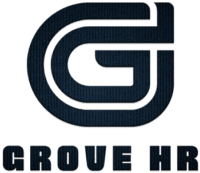Move over, Millennials. Generation Z—those born between 1995 and 2010—are no longer “the next big thing.” They’re here, and they’re already leaving their mark on the global workforce in ways that few companies saw coming.
With more than 61 million Gen Z Americans and over 2 billion globally, this group is quickly surpassing Millennials in numbers and rewriting the rulebook on what it means to be a worker, a colleague, and even a boss.
In 2025, the oldest members of Gen Z are around 30, and their presence in offices, shops, factories, and remote Zoom meetings is impossible to ignore. Employers across the United States and beyond are realizing that what worked for previous generations simply doesn’t cut it anymore.
Gen Z is bringing new energy, new expectations, and a new set of values that are forcing businesses to rethink everything—from recruiting and training to leadership and retention.
But what exactly sets Gen Z apart, and how can organizations adapt to tap into their potential? Let’s dive into the data, traits, and evolving demands of a generation determined to do things differently.
The Big Numbers: Gen Z’s Growing Influence
- 61 million Gen Zers in the U.S. alone (Pew Research, 2024).
- They will make up over 30% of the American workforce by 2030.
- 75% of Gen Z say they want to work for organizations whose values align with theirs (Deloitte Global Gen Z Survey, 2024).
- 58% of Gen Z already have some form of gig work or side hustle—more than any prior generation.
- Over 90% expect some form of hybrid or remote work flexibility (Gartner, 2025).
- 98% of Gen Z owns a smartphone, and 53% spend at least 10 hours daily on mobile devices (GlobalWebIndex, 2024).
Defining Characteristics: What Makes Gen Z Tick?
1. Health First, Pay Next
For Gen Z, salary is important—but not at the expense of well-being. In a survey by the American Psychological Association (2025), 67% of Gen Z workers said they would rather earn less at a job that supports their mental and physical health than take home a bigger paycheck from a high-stress employer.
Flexible schedules, wellness benefits, and access to counseling are now “must-haves,” not perks. Gen Zers expect employers to walk the talk on work-life balance, or they’ll look elsewhere.
2. Digital Natives and Tech Trailblazers

Gen Z is the first generation raised entirely in the internet age. They are “digital natives,” having never known a world without smartphones, instant messaging, or social media. It’s not just that they’re comfortable with tech—they expect it everywhere, from recruiting to training to daily workflow.
According to a 2024 LinkedIn survey, 84% of Gen Z employees said they prefer to use apps for HR tasks, communication, and even feedback.
However, despite their tech fluency, Gen Z values human interaction too. Face-to-face mentoring, regular check-ins, and team collaboration are all vital. They want to be part of a connected, supportive environment—not just another cog in a digital machine.
Stat to know:
3. Embracing Diversity and Inclusion
If Millennials nudged the workplace toward diversity, Gen Z is driving it at full speed. This is the most ethnically and culturally diverse generation in U.S. history—nearly 50% identify as non-white—and they demand that their workplaces reflect this reality.
According to the Pew Research Center, 83% of Gen Z believe a company’s track record on diversity and inclusion is a key factor when deciding where to work.
Beyond race and ethnicity, Gen Z values diversity of thought, background, and identity. They expect pronoun inclusivity, zero tolerance for discrimination, and active support for LGBTQ+ and other marginalized groups. Companies that don’t make this a priority risk losing top talent.
4. Ambitious, Competitive, and Entrepreneurial
40% of American adults have side hustles due to remote work and economic instability. Over half of Gen Z and Millennials are involved in side gigs, hoping to turn them into full-time jobs. Justin Cambra recommends having multiple sources of income.https://t.co/LrR8gddKAi
— Entrepreneur (@Entrepreneur) March 11, 2024
Unlike their Millennial predecessors, who were often criticized for “job-hopping” and seeking meaning over money, Gen Z brings a sharper edge to the workplace. They are deeply ambitious, often competitive, and highly entrepreneurial.
A report from Upwork found that 58% of Gen Z Americans have a side hustle or freelance gig—double the rate for Millennials at the same age.
They thrive on merit-based evaluation, crave constructive feedback, and want opportunities to showcase their individual strengths. While they value teamwork, many Gen Zers prefer roles where they can demonstrate independence and get recognized for their unique contributions.
5. Multitasking Masters
Gen Z has grown up juggling screens, notifications, and multiple projects simultaneously. They are the ultimate multitaskers—able to process information quickly and efficiently, switch contexts on the fly, and adapt to ever-changing priorities.
Their average attention span might be short, but their ability to absorb, synthesize, and apply new information is unmatched.
Employers often see this as a superpower in fast-paced, dynamic industries, provided Gen Z workers are given the right guidance and support.
Gen Z vs. Millennials: What’s Really Different?

The arrival of Gen Z is prompting direct comparisons with Millennials, and for good reason—they’re two neighboring generations with distinct attitudes:
Attribute
Millennials
Generation Z
Born
1981–1994
1995–2010
Size (U.S.)
~56 million
~61 million
Core Values
Collaboration, optimism
Independence, realism
Tech
Digital adopters
Digital natives
Diversity
Grew up with it emerging
Expect it as the norm
Attitude to work
Meaning-driven, loyal
Outcome-driven, pragmatic
Approach to risk
Cautious, collaborative
Self-reliant, entrepreneurial
Job expectations
Career development
Job security, flexibility
Millennials were raised during an era of economic growth and optimism. They value personal fulfillment, collaboration, and work-life balance. They often gravitate toward traditional career paths with clear advancement opportunities.
Gen Z, on the other hand, came of age during the Great Recession and a period of global uncertainty. As a result, they tend to be more practical, security-focused, and skeptical of promises from employers.
They want jobs that feel stable, but they’re not afraid to create their own opportunities. Gen Zers expect rapid growth, frequent feedback, and a chance to make an immediate impact.
What Employers Need to Know: Attracting and Retaining Gen Z Talent
View this post on Instagram
So, how can organizations not just attract, but also retain and motivate Gen Z workers? Here are a few actionable insights:
1. Rethink Compensation and Benefits
Salary matters, but holistic well-being matters more. Offer mental health support, flexible hours, wellness stipends, and paid time off.
2. Embrace Technology
Invest in digital tools, automate repetitive tasks, and empower Gen Z to work from anywhere. Offer ongoing digital skills training and let them leverage the latest apps and platforms.
3. Prioritize Diversity, Equity, and Inclusion
Make inclusivity a core company value, not just a slogan. Foster open dialogue, ensure diverse representation at all levels, and support Employee Resource Groups.
4. Provide Clear Feedback and Growth Paths
Gen Z wants regular, honest feedback and visible paths to advancement. Ditch the annual review—opt for real-time coaching, skill-building, and micro-promotions.
5. Offer Flexibility and Autonomy
Let them shape how, where, and when they work. Trust them to get results, whether it’s from the office, home, or a coffee shop.
6. Cultivate a Sense of Purpose
Gen Z wants to know their work matters. Connect daily tasks to a larger mission, give them projects with real impact, and support causes that align with their values.
What the Future Holds: Generation Z Is Here to Stay

Generation Z is more than just a wave—they’re the new foundation of the workforce. Their tech-savvy, independent, and purpose-driven approach is rapidly transforming offices around the globe.
For employers ready to adapt, Gen Z represents a wellspring of creativity, resilience, and fresh perspective. Those who fail to evolve risk falling behind.
Workplaces that champion health, diversity, flexibility, and real-time growth will thrive in the age of Gen Z. Those that don’t may struggle to recruit or retain the best young talent.
It’s time to let go of stereotypes and embrace the reality: Gen Z is not only here, but they’re also ready to lead.
As the decade progresses, expect to see more Gen Zers in leadership roles, launching new ventures, and driving innovation. Their unique combination of digital skills, multicultural awareness, and relentless drive will continue to reshape what “work” means in the 21st century.
Welcome to the Gen Z era. The future of work has already begun.

